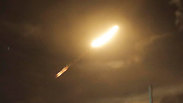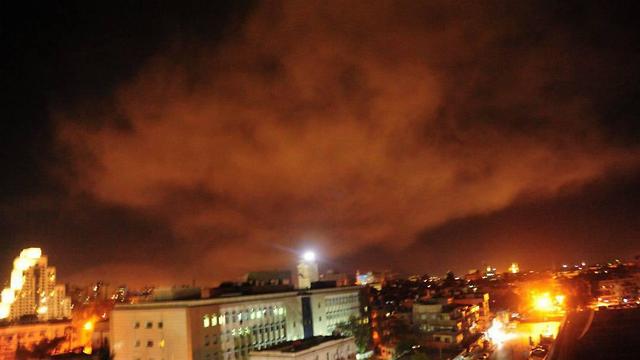
The strike took place in al-Harra, southeast of Albu Kamal, Syrian state media said.
The Syrian Observatory for Human Rights reported 40 pro-regime fighters were killed, while some reports indicated the fatalities were Iranian militia fighters.
A commander in the military alliance backing Syrian President Bashar Assad also told Reuters that drones, "probably American," had bombed positions of Iraqi factions between Albu Kamal and Tanf and Syrian military positions.
"No member of the US-led coalition carried out strikes near Albu Kamal," Major Josh Jacques, a US Central Command spokesman, told Reuters.
The US-led coalition is supporting an alliance of Syrian Arab and Kurdish militia fighting Islamic State northeast of Albu Kamal.
The Syrian army, alongside allied Iran-backed militias including Lebanon's Hezbollah and Iraqi groups, drove Islamic State from Albu Kamal and its environs last year, but the jihadists have since staged attacks in the area.
US forces are also based in Tanf, southwest of Albu Kamal in the Syrian desert near the borders of Iraq and Jordan.
The Syrian army, alongside Iran-backed militias including Lebanon's Hezbollah and Iraqi groups, drove Islamic State from Albu Kamal and its environs last year, but the jihadists have since staged attacks in the area.
'Occupying forces'
The Syrian Observatory for Human Rights said unidentified planes had struck Shi'ite Hezbollah and other foreign militias allied to the Syrian state around Albu Kamal.
Asked about the reported air strikes, an Israeli military spokeswoman said: "We do not comment on foreign reports."
Throughout Syria's seven-year war, Israeli officials have disclosed scores of air strikes within the neighboring country against suspected arms transfers to Hezbollah or Iranian deployments.
Israel, alarmed about the clout of arch enemies Iran and Hezbollah, has been pressing Russia, Assad's other key ally, to make sure they do not entrench their military sway in Syria.
Prime Minister Benjamin Netanyahu told his cabinet he had "repeated and clarified" his Syria policy in weekend phone calls with Russian President Vladimir Putin and US Secretary of State Mike Pompeo.
"First of all, Iran must clear out of all of Syria," Netanyahu said on Sunday, according to a statement from his office. "Secondly, we will take action, and are already taking action, against the attempted military entrenchment of Iran and its proxies, both close to the border and deep within Syria."
In an interview last week, Assad called Hezbollah "a basic element" in the war and said "the need for these military forces will continue for a long time."
He said the United States was an occupying power in Syria and that his state supports "any act of resistance, whether against terrorists or against occupying forces, regardless of their nationality."

















